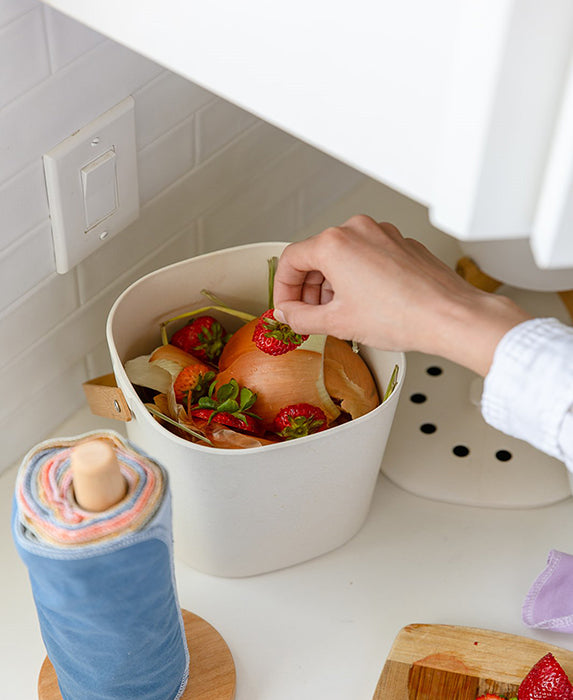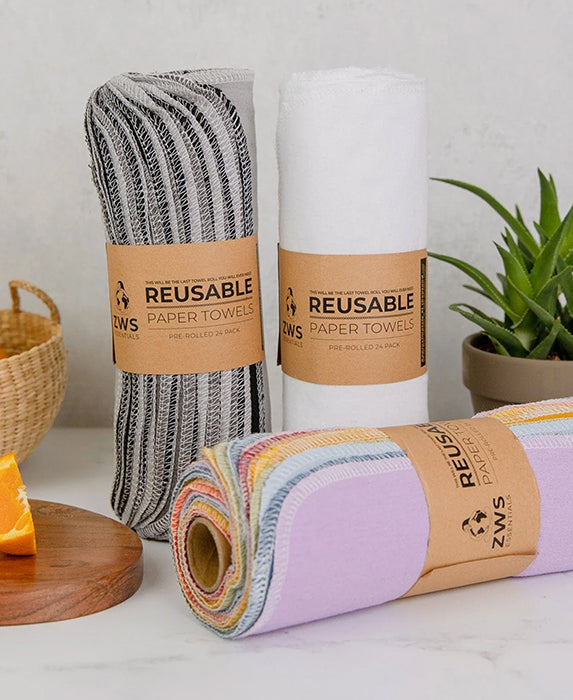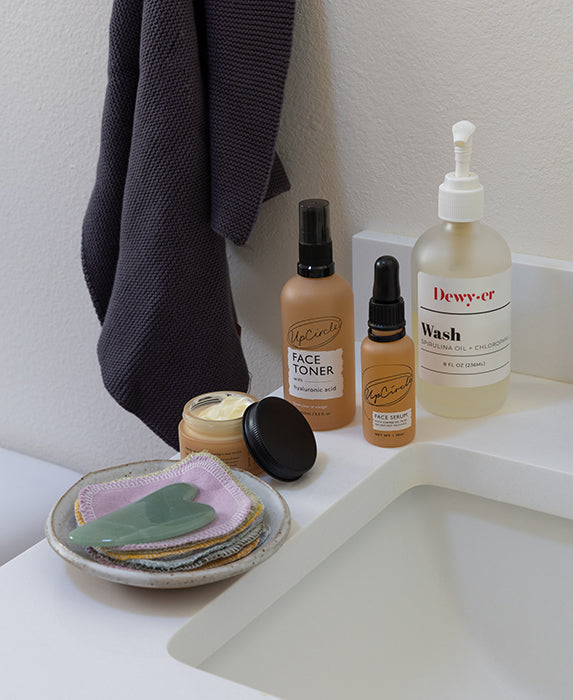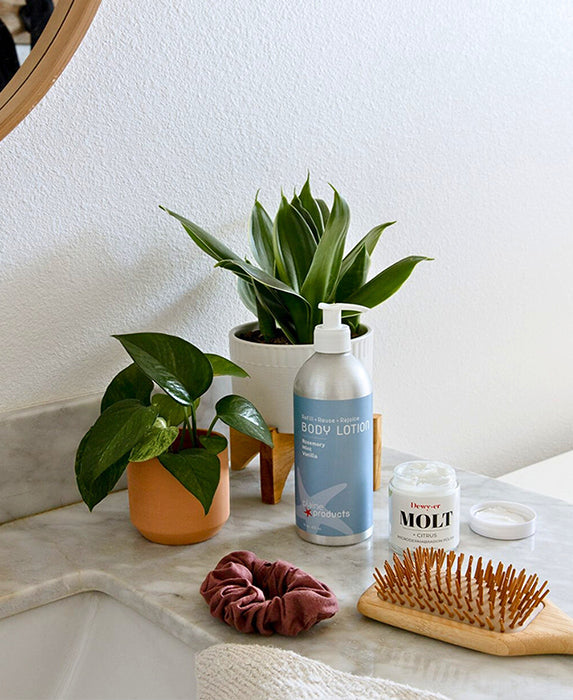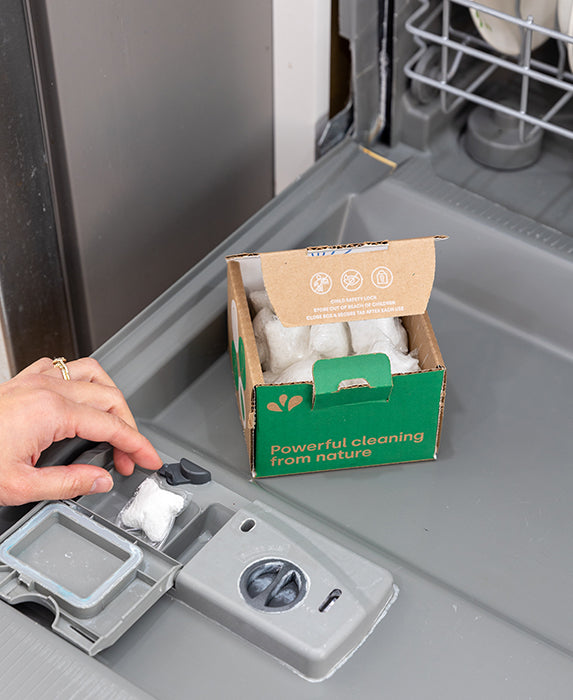Learn why compostable trash bags are better for the environment, how they compare to plastic, and which compostable bags are best for your home.
Do you ever feel like a plastic bag, drifting through the wind?
No, neither do we. Trash bags are one of those everyday items most people never question. We tie them up, toss them out, and replace them without a second thought. But what if something as simple as your kitchen trash bag could have a big impact on the planet?
That’s where compostable trash bags come in. These alternatives to bags are designed to break down naturally, reducing long-term waste and helping to address one of the most persistent sources of plastic pollution in our homes.
Whether you're wondering, “are compostable trash bags worth it?” or searching for the best compostable trash bags out there, this guide breaks it down. Literally.
What Are Compostable Trash Bags?
Compostable trash bags are made from plant-based materials like cornstarch, PLA (polylactic acid), or other renewable resources.
Unlike conventional plastic, which can take 500+ years to degrade in a landfill, compostable bags are designed to break down under the right conditions within a matter of months.
Some compostable bags are certified for home composting, while others require industrial composting facilities. Either way, they offer a serious upgrade over single-use plastic.
According to the EPA, in 2018, Americans generated 292.4 million tons of municipal solid waste, with over 12% of it being plastic!
Are Compostable Trash Bags Better for the Environment
Short answer? Yes, but (there’s always a but!) you have to choose the right ones for them to be effective.
According to a 2023 Ethical Consumer report, compostable plastics tend to break down more easily than conventional plastics in composting facilities. However, they often require industrial conditions to fully decompose. It’s important to check whether the bags are specifically home-compost certified.
Benefits include:
- ✅ Made from renewable resources instead of fossil fuels
- ✅ Break down faster and more safely than traditional plastic
- ✅ Reduce microplastic pollution
- ✅ Encourage composting of food scraps and green waste
While compostable bags aren’t perfect (they need the right conditions to break down), they’re a major improvement over conventional options.
Are Compostable Trash Bags Worth It?
If you’re trying to reduce your environmental impact, switching to compostable bags is a meaningful, low-effort change. They may cost slightly more than plastic, but they’re an investment in a cleaner, less polluted planet.
Plus, they help:
-
Reduce plastic in landfills
-
Support your composting habits
-
Avoid microplastics in the waste stream
-
Encourage more sustainable shopping and disposal habits
Our Top Picks: Best Compostable Trash Bags
Looking to make the switch? Here are three of our favorite trash bag alternatives worth exploring. They combine durability, sustainability, and performance:
1. GreenPolly 13 Gallon Kitchen Trash Bags
Made from 90% certified post-consumer recycled plastic and 10% renewable bioplastic from sugarcane, these 3-ply bags are a great hybrid choice. They offer the durability of traditional trash bags while reducing your carbon footprint.
2. BioBag Compostable Kitchen Bags (48-Pack)
If you’re ready to ditch plastic entirely, BioBag has your back. These fully compostable bags are perfect for home or business use and break down in composting environments.
-
Made for 13-gallon bins
-
Compostable in municipal or commercial facilities
3. ZWS Essentials Compostable Trash Bags
These plant-based trash bags are a simple swap with a big impact. Designed for everyday use, they fit most standard kitchen bins and are completely home compostable.
Explore the full collection: Trash & Recyclable Products
Want to go even further? Try these additional sustainable home swaps:
Final Thoughts: Small Switch, Big Impact
So, are compostable trash bags better? Yes, especially when they’re disposed of correctly and used as part of a broader zero waste lifestyle.
They’re not a silver bullet, but they are a practical, meaningful step toward reducing our dependency on plastic and keeping harmful materials out of landfills.
So next time you take out the trash, ask yourself: is this bag going to outlive me? If the answer is yes, it might be time for a switch.

